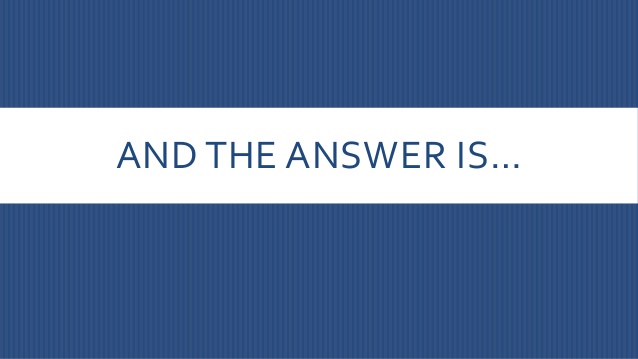Our Universities and the Evolving World of Work


It is no longer news that there is a wide gap between the realities of our Higher Institution models/curricula and the ever-growing world of work. A required category or particular set of knowledge, abilities and experience seem to be the growing norm if you must be employable, relevant and rise in the new world of work. Often times, recruiters are faced with the challenge of skill gaps – the availability of a job position versus the unavailability of the skilled suitable candidate.
Organisations, Business leaders and owners today, wonder at the quality of graduates being churned out yearly. Why? There is a big disconnect in the modules taught leading to the award of a university degree and the expectations of the evolving and growing world of work. While Business leaders and owners wonder at what graduates are taught in school due to their inability to properly fit into the world of work considering they are lacking in what they consider as basic skills; the universities are left to wonder if organisations and business owners have come up with this as a cover-up and as justification for the growing rate of declining investment in on-boarding and training of new hires and of training generally?
So, whose responsibility is it to ensure University graduates are equipped to take up the responsibilities in the world of work. Is it the sole responsibility of the higher institutions or a joint effort of the employing organisation and our higher institutions, the Government of the day not excluded? Or it is time for a collaboration/alliance between our schools and the business world? A graduate is expected to be fully formed upon graduation from a four-year university degree. Whose responsibility? May I proffer a solution, considering the present state of affairs in my dear country, ‘My dear student, do all that is within your power and invest in your training and development. Afterall you own your knowledge copyright. In due season, you will reap the fruits of your investment and be the better for it’. In a nutshell, upon graduation, ensure you are as equipped as you can be with the basic skills. There are free training out there, search them out. Go on Eventbrite.com
Aborting ‘The Systemic’ Gberumi-Somi Syndrome
If I were to remodel the curricula of our higher institutions, it would look something like this. A 4 year degree program with modules on theories, policies, practices, processes on chosen course of study for starters then gravitate towards the liberal arts to technical skills; a later infusion of learning of technical skills, IT skills, acquisition of business acumen, top it up with soft skills learning – Emotional Intelligence, presentation, communication and leadership skills, all enshrined in situational or circumstantial learning, real-life case studies and the application of learned and given information to life scenarios with all wrapped up in creativity, critical thinking and problem solving, deductive and inductive reasoning and analytical skills trouble-shooting. A mix of all these academic ingredients and the ability to deal with ambiguous and complex situations gives an output of a balanced degree menu towards a productive organisation milieu and the overall growth and development of our great country.
Country and Lawmakers Readiness
But then, a re-modelling would require the involvement of our distinguished lawmakers as a bill would have to be passed, deliberated and voted on. I do have my fears and concerns though. Until recently when History was returned to the School curriculum and ordered to be taught as a stand-alone; the subject had been relegated to the backwaters in the 2007 education curriculum announced by the Federal Government. After much back and forth, that subject is back but then what’s the reality on the ground? If this is the faith of History as a subject considering that the importance of teaching it cannot be underestimated, one needs not wonder what to expect if the country was to deliberate over the re-modelling of the curriculum in our higher institution. History helps us better understand our country, helps the present and future generations function effectively as we understand how the country works – past knowledge is required for understanding present realities and avoidance of past mistakes. What other ways to prepare upcoming generations for the future than the infusion of history into their learnings. A Yoruba adage says: ‘Omo ti a a ba ko, ni yi o gbe ile ti a ko ta’.
Open Day, Eye-Opening Day
This section is an after-thought. So, I am at my ward’s open day, the day after the initial write up and I decided to take the Principal up, on what plans the school had put in place to restore the teaching of the History subject. Oh boy! By the time the Principal finished his explanation, the matter no be from here to there o. The discussion in its entirety is for another day. But then let me say this: ‘People, let’s take heed to the groans coming from the severe beating our country’s education is having to endure’. Where do I start? Is it the ungrounded, unstable educational policies being churned out riddled in inconsistency and for which no proper implementation process is put in place? I was made to understand it’s a good effort but there’s more to be done than just passing a decree for the return of History subject. The government just make policy statements and leave them hanging – on-paper-alone. We are quick to pass these laws but the reality on the ground for its actual implementation is a far cry. Or is it the massive level of corruption and extortion of schools particularly private schools by the education board, I want to talk about. We kept postponing the Basic Education Certificate Exam (BECE) at the expense of disruption of the school academic programs; I guess we were more concerned about the projected advantage of extorting money than of the academic programs that will be distorted. Fine, we needed to step-up and upgrade the way we do things in our aspiration to be at par with international best practices, but at whose expense? How do you explain the fact that the results just got released in the 7th week of school resumption? The Private Schools are able to adapt and come up with some workable solution. It is however with a heavy heart that I report my findings that children in state schools have had to do a compulsory sit-at-home. Why? Your system and my system failed them. Several parts of the system are dead. Corruption has so pervaded the system that rather than utilise the training system to improve status of school heads, expose them to professional training and certification, the first thought that will come to a typical mind is: ‘how can I approve this huge sum for training when it will build me a good house?’.
Children want to go to school but they get abducted. Children wish to be in school but our examining bodies would not put their house in order and do the right thing at the right time and we bemoan the level of uneducated or out of school children in the country. Schools, communities, parents, this is the future of our children we talk about. Let’s close the chasm and make it a collaborative effort – speak when we need to; react when necessary; let our displeasure be known through evidence-based feedbacks. As I said this section came as an afterthought. After all, our children would necessarily gain admission into our higher institutions of learning from our secondary schools.
Now, Let Me Conclude My Initial Narrative
With the basic acquisitions, after spending four years in the higher institution, employment or no employment, you would be ready to take on the world better equipped and all-ready. It is a move from just being book-smart to a combination acquisition of real-people skills and a real-world application of acquired knowledge skills. My brother and sister, the undergraduate soon to become a graduate, if you ask me, let us take our academic faith in our hands and give it all our best. Many of our fathers, uncles and aunties in the law-making house have their children outside the shores of this country and I do not think they care. Maybe they do but the apparent non-patriotic leadership mien leaves nothing to the imagination. I just have not seen enough signs to believe. So, welcome on-board. No one can change our institutions, not ECOWAS, not UN, not AU but ‘We’.



